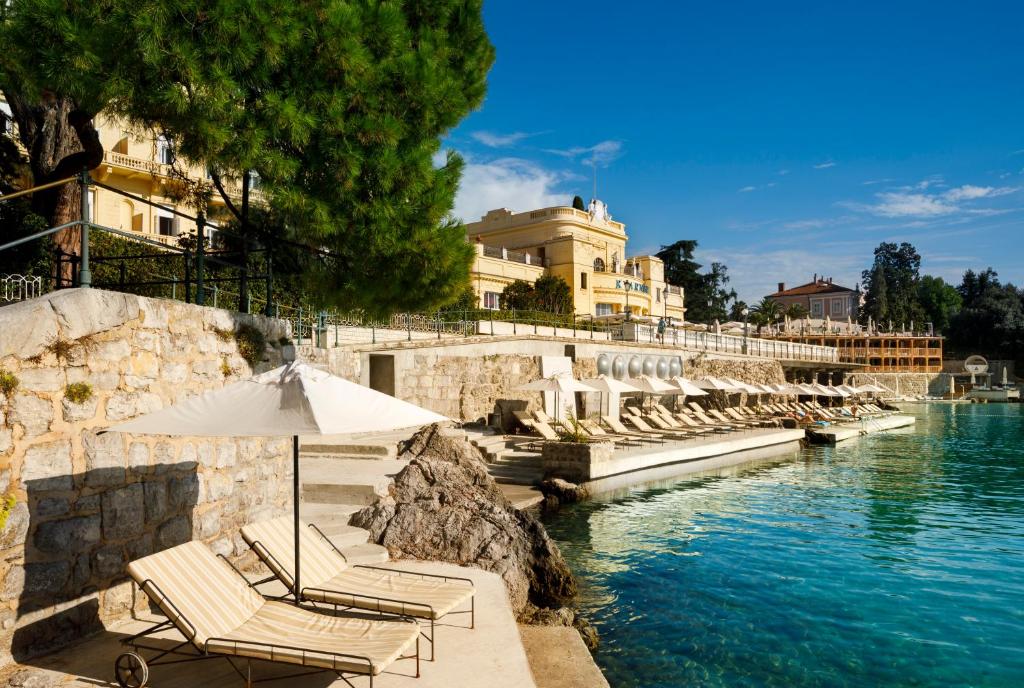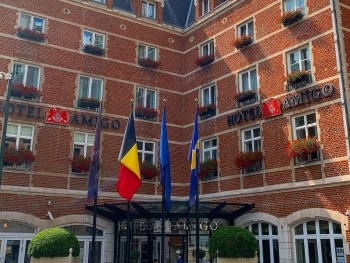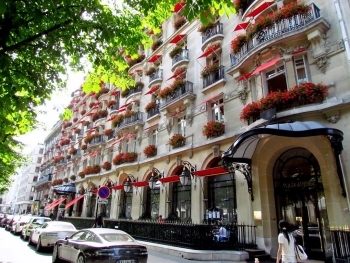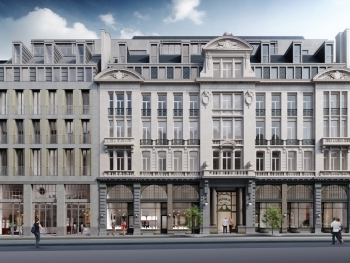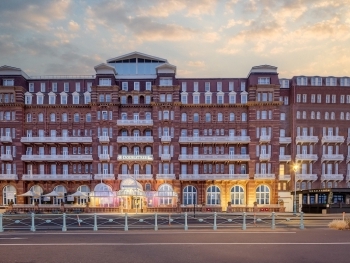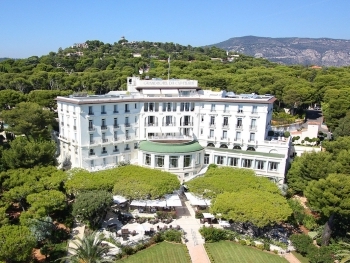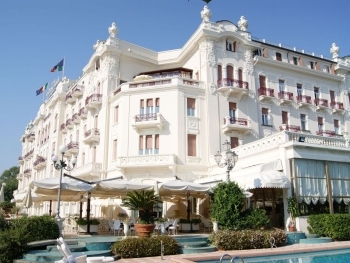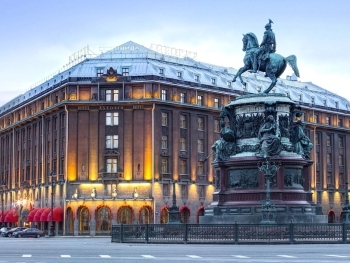Nestled along the picturesque coastline of Opatija, Croatia, the Grand Hotel Kvarner-Amalia stands as a testament to timeless elegance and historical significance. This iconic establishment, often referred to simply as Hotel Kvarner, has been a symbol of luxury and sophistication since its inception in the 19th century. Its story intertwines with the rich cultural and social tapestry of the region, making it not just a place of lodging, but a landmark steeped in heritage and grandeur.
Historical Background
Origins and Early Years
The origins of the Grand Hotel Kvarner date back to the Austro-Hungarian Empire, a time when Opatija was emerging as a prominent seaside resort. Officially opened in 1884, Hotel Kvarner holds the distinction of being the oldest hotel on the Adriatic coast. Its establishment was part of a broader vision to transform Opatija into a premier health and wellness destination, capitalizing on its mild climate and stunning natural surroundings.
The hotel's construction was spearheaded by Friedrich Julius Schüler, the director of the Southern Railways, which aimed to create a luxurious retreat accessible to the European elite. Designed in the neoclassical style, the hotel featured elegant architectural details, spacious rooms, and modern amenities for its time, including electric lighting and heating.
Golden Era
The late 19th and early 20th centuries marked the golden era for Hotel Kvarner. During this period, it became a favored destination for aristocrats, artists, and intellectuals from across Europe. The hotel's guest list boasted names such as Austrian Emperor Franz Joseph I, composer Gustav Mahler, and writer James Joyce. The serene atmosphere, coupled with the hotel's opulent offerings, made it an ideal retreat for those seeking both relaxation and inspiration.
The surrounding area of Opatija also flourished during this time, with the construction of parks, promenades, and other luxurious hotels, further enhancing the region's appeal. Hotel Kvarner played a pivotal role in establishing Opatija as the "Nice of the Adriatic," drawing comparisons to the renowned French Riviera.
Architectural and Design Features
Exterior and Grounds
The Grand Hotel Kvarner's architecture is a harmonious blend of neoclassical and Renaissance Revival styles, characterized by its grand façade, ornate details, and stately columns. The building's exterior, painted in a soft pastel hue, exudes a sense of grace and sophistication. The well-manicured gardens and terraces overlooking the Adriatic Sea provide a tranquil setting for guests, offering breathtaking views and a serene ambiance.
The hotel's grounds are adorned with lush greenery, vibrant flowers, and elegant sculptures, creating an idyllic environment for leisurely strolls. The seafront location ensures that the soothing sound of waves and the fresh sea breeze are constant companions for visitors.
Interior Elegance
Stepping inside the Grand Hotel Kvarner, guests are greeted by an interior that exudes classic elegance and timeless charm. The lobby, with its high ceilings, chandeliers, and marble floors, sets the tone for the luxurious experience that awaits. The decor is a tasteful blend of antique furnishings and modern comforts, ensuring that the historical character of the hotel is preserved while catering to contemporary needs.
The hotel features a variety of room types, from standard accommodations to lavish suites, each thoughtfully designed to provide comfort and style. Many rooms offer stunning views of the sea or the verdant gardens, allowing guests to fully immerse themselves in the beauty of the surroundings.
Cultural Significance and Modern Transformation
A Cultural Hub
Throughout its history, the Grand Hotel Kvarner has been more than just a place to stay; it has been a cultural hub where art, music, and literature have flourished. The hotel has hosted numerous concerts, exhibitions, and literary events, contributing to the vibrant cultural scene of Opatija. Its grand ballroom, with its exquisite decor and acoustics, has been the venue for many memorable performances and gatherings.
The hotel's cultural significance is further highlighted by its role in various historical events and its association with prominent figures. It has served as a backdrop for important political meetings, social events, and artistic endeavors, cementing its place in the annals of history.
Modern Renovations and Offerings
While the Grand Hotel Kvarner retains its historical charm, it has also undergone several renovations and upgrades to meet the demands of modern travelers. These efforts have ensured that the hotel continues to provide top-notch amenities and services while preserving its architectural integrity and historical significance.
Modern amenities at the hotel include a spa and wellness center, offering a range of treatments and therapies designed to promote relaxation and rejuvenation. The hotel's dining options are equally impressive, with restaurants serving a blend of local and international cuisine, prepared with the finest ingredients.
The hotel also caters to business travelers and event organizers, with state-of-the-art conference facilities and banquet halls. These spaces are equipped with modern technology and can accommodate a variety of events, from corporate meetings to weddings and celebrations.
The Grand Hotel Kvarner-Amalia stands as a beacon of elegance and history on the Adriatic coast. Its storied past, architectural grandeur, and cultural significance make it a cherished landmark in Opatija. As it continues to evolve and adapt to the needs of contemporary travelers, it remains a testament to the enduring appeal of classic luxury and timeless charm.
For those seeking a blend of history, culture, and natural beauty, the Grand Hotel Kvarner offers an unparalleled experience. It is a place where the past and present harmoniously coexist, providing guests with a unique opportunity to immerse themselves in the rich heritage and stunning beauty of the Adriatic.
